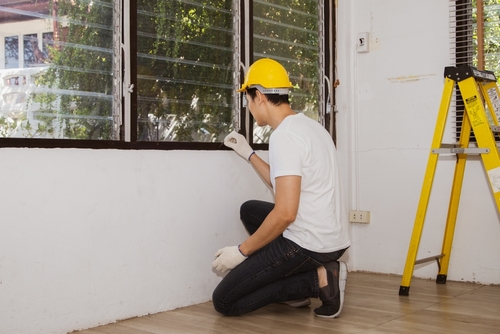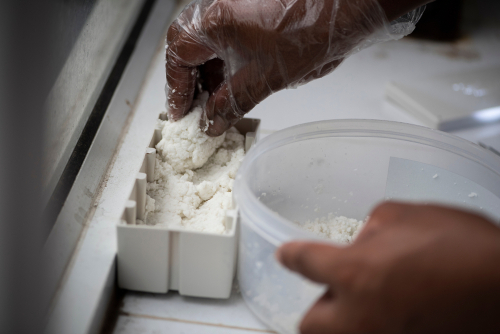
Termite Baits vs Liquid Treatments: Detailed Comparative Analysis
February 13, 2024
Identifying Different Species of Termites
May 5, 2024Guide to Termite Inspection and Prevention for Homeowners

Guide to Termite Inspection and Prevention for Homeowners
Guide to Termite Inspection and Prevention for Homeowners. Termites are among the most destructive pests that can invade homes, causing significant damage to wooden structures and compromising the integrity of buildings.
In Singapore, where the warm and humid climate provides an ideal environment for termite activity, homeowners must be vigilant in detecting and preventing termite infestations.
This comprehensive guide aims to equip homeowners with the knowledge and tools necessary to conduct thorough termite inspections and implement preventive measures to protect their homes.
Understanding Termites
Termites are small insects belonging to the order Isoptera, known for their destructive feeding habits on wood and cellulose-based materials.
They live in colonies with a complex social structure comprising workers, soldiers, and reproductive individuals, including kings and queens.
Feeding Habits
Termites feed on cellulose, the main component of plant matter, which is found in wood, paper, and other organic materials.
They can cause extensive damage to wooden structures, including beams, furniture, and even books and documents.
Signs of Infestation
Common signs of termite infestations include mud tubes along walls or foundations, damaged or hollow-sounding wood, termite frass (fecal matter), and discarded termite wings.
Recognizing these signs early is essential for effective pest control.
Pre-Inspection Preparation

Before conducting a termite inspection, homeowners should gather essential tools such as a flashlight, screwdriver, magnifying glass, and protective gloves.
These tools will aid in detecting signs of termite activity.
Homeowners must familiarize themselves with common signs of termite infestations, as mentioned earlier.
Regular monitoring and awareness can help detect infestations in their early stages, preventing extensive damage.
Conducting a Termite Inspection
Exterior Inspection
Begin the inspection by examining the exterior of the home, focusing on the foundation, exterior walls, and wooden structures such as decks and fences. Look for mud tubes, damaged wood, and signs of termite activity.
Interior Inspection
Next, inspect the interior of the home, paying close attention to areas where wood meets the ground or where moisture may accumulate, such as basements, attics, and crawl spaces.
Check door and window frames, wooden furniture, and stored items for signs of infestation.
Moisture and Ventilation Check
Identify and address any sources of moisture around the home, as moisture attracts termites.
Ensure proper ventilation in areas prone to humidity, such as crawl spaces and attics, to deter termite infestations.
Professional Inspection and Treatment

While homeowners can conduct their own inspections, it’s essential to schedule regular professional termite inspections with qualified pest control professionals.
Professionals can assess the extent of termite activity and recommend appropriate treatment measures.
Treatment options for termite infestations may include chemical barriers, baiting systems, and fumigation, depending on the severity of the infestation.
Professional pest control companies can advise on the most suitable treatment for the specific situation.
Preventive Measures
Regular Maintenance
Regular maintenance of the home, including repairing leaky pipes, fixing cracks in the foundation, and sealing gaps around doors and windows, can help prevent termite infestations by eliminating potential entry points.
Termite-Resistant Materials
When building or renovating, consider using termite-resistant materials such as treated wood or metal framing.
These materials are less susceptible to termite damage and can help reduce the risk of infestation.
Soil Treatment
Applying termite-resistant chemicals to the soil around the home’s perimeter can create a barrier against termites, preventing them from entering the structure.
This preventive measure can be effective in deterring termite infestations.
FAQ

Can I Conduct Termite Inspections Myself, or Should I Hire a Professional?
While homeowners can perform basic termite inspections, it’s often recommended to hire a professional pest control company for thorough and accurate assessments.
Professionals have the expertise and tools to detect termite activity, especially in hard-to-reach areas, and can provide tailored treatment recommendations based on the severity of infestation.
How Often Should I Conduct Termite Inspections?
Termite inspections should ideally be conducted annually, especially in regions with high termite activity like Singapore.
Additionally, regular inspections should be performed before and after the rainy season, as termites are more active during periods of high humidity.
What Should I Do If I Find Signs of Termite Activity?
If you discover signs of termite activity during an inspection, it’s essential to take immediate action.
Contact a professional pest control company to assess the extent of the infestation and recommend appropriate treatment measures.
Avoid disturbing termite colonies, as this can cause them to scatter and make treatment more challenging.
Are There Any Natural or DIY Methods for Preventing Termite Infestations?
While professional treatment is often necessary for severe infestations, there are some natural and DIY methods that homeowners can implement to help deter termites.
These include using termite-resistant building materials, maintaining proper ventilation to reduce humidity, and applying natural repellents such as neem oil or orange oil around the home’s perimeter.
What Steps Can I Take to Prevent Future Termite Infestations After Treatment?
After treating a termite infestation, homeowners should take proactive steps to prevent future infestations.
This includes regular maintenance of the home to address moisture issues, repairing any structural damage, and installing physical barriers such as metal screens or termite shields to prevent termite entry.
Why Choose Us for Your Termite Inspection and Treatment Needs

Expertise and Experience
With years of experience in the pest control industry, our team of highly trained technicians possesses the expertise to accurately identify termite activity and recommend effective treatment solutions.
Comprehensive Inspections
We conduct thorough termite inspections using state-of-the-art equipment and techniques to detect even the smallest signs of termite activity.
Our detailed assessments enable us to develop customized treatment plans tailored to your specific needs.
Safe and Effective Treatments
We utilize safe and environmentally friendly treatment methods to eradicate termites from your property without posing harm to your family or pets.
Our treatments are designed to target termite colonies at the source, ensuring long-lasting results.
Guaranteed Results
We stand behind the effectiveness of our termite treatments with satisfaction guarantees. If termite activity persists after treatment, we will reevaluate and retreat as necessary at no additional cost to you.
Educational Resources
In addition to providing termite inspection and treatment services, we strive to educate homeowners about termite prevention strategies and maintenance practices to minimize the risk of future infestations.
By choosing us for your termite inspection and treatment needs, you can have peace of mind knowing that your home is in capable hands. Contact us today to schedule a consultation.
Guide to Termite Inspection and Prevention for Homeowners – Conclusion

By following the comprehensive guide provided in this article, homeowners in Singapore can effectively detect and prevent termite infestations, safeguarding their homes from costly damage.
Regular inspections, proactive maintenance, and professional pest control services are essential components of a comprehensive termite prevention strategy.
With vigilance and proper preventive measures, homeowners can enjoy peace of mind knowing that their homes are protected from the threat of termites!
Are you seeking professional and reliable termite control services in Singapore? Contact us today!




